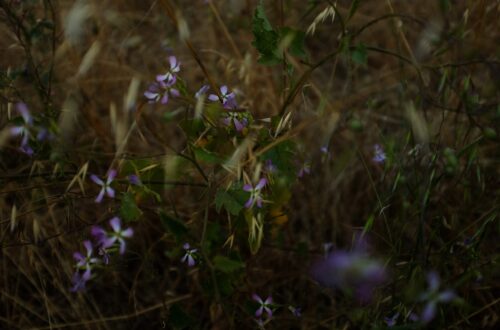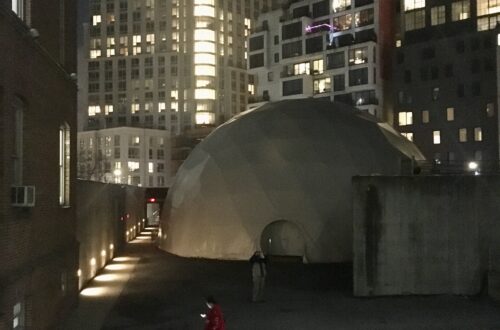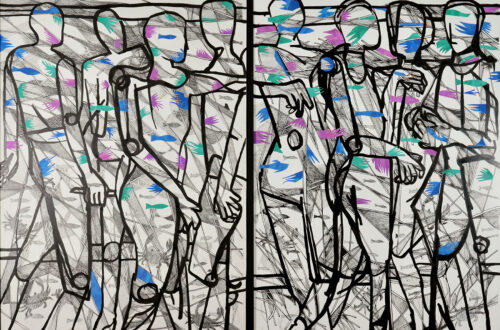Two Poems by Manuel Vilas "Vampire Apprentice" and "Stockholm" Translated from Spanish by John Yohe
Vampire Apprentice
(La Caleta, Cádiz)
I don’t remember anything anymore, and I am gratefully alone.
I like to walk along the beach with an ice-cream in hand, a Magnum,
white chocolate, sometimes I think of myself as a benevolent vampire,
indignant about the strict morals of proud subterraneans,
and I slip into the beach movie theatre, and watch whatever,
and when I leave I drink a lemonade and watch the stars on the sea
and think that the actor in the movie who played Pablo Neruda
was more handsome and taller than the real Neruda, and I write a postcard,
sitting on a terrace, and I order a gin on the rocks,
and then a second one, and three more, and I would like everything to return,
the age of words and the age of innocence
returning together, but I’m an old-fashioned vampire,
who honors in death the same years as alive.
I am an inexpert vampire, miser, with no crimes to remember.
Once again on my feet, and I ask God give me a second
chance, but why do I want it, if I would return to abuse
everything like I always did, better to continue as a good-time
vampire: diurnal lighting in the soul, kings of the
The Reconquest of Spain who rot with me
in purgatory, officials of the Third Reich, Cervantes and Goya,
a ninety-seven year old nun dead in an abandoned
monastery, whose burial was attended by a black vampire with a red
rose, first and last of the movement, the order, the nada,
the greed, the chaos, the lust, the dry briefness of the sunflowers.
Don’t leave me, my love, how huge the night is and I have a fever,
my evils conspiring together, and I never want to lose life.
Don’t leave me, my love, die for me if necessary,
even though I never knew how to even take a step without you.
Don’t leave me, my love, that life never end sad, the day
has too many hours, too much light, and I was always alone,
and there is nothing on the earth that can cure the evil I suffer,
God left me with myself a long time.
I doubt it’s night,
I doubt the ice in my glass of clear gin,
I doubt the boardwalk where I’m sitting,
I’m nothing and that’s how I wanted it, because there never was anything.
I loved art, I hated art, and the moon came out and I kept drinking,
and I was happy.
Aprendiz de Vampiro
(La Caleta, Cádiz)
Yo ya no me acuerdo de nada y estoy agradecidamente solo.
Me gusta pasear por la playa con un helado en la mano, un Magnum
de chocolate blanco, a veces me creo un vampiro benévolo,
indigno de los rigores morales de las fieras subterráneas,
y me meto en el cine de la playa, y veo cualquier cosa,
y me tomo, a la salida, una limonada y miro las estrellas sobre el mar
y pienso que el actor de la película que interpretaba a Pablo Neruda
era más guapo y más alto que el verdadero Neruda, y escribo una postal,
sentado en una terraza, y me pido una ginebra con hielo,
y luego una segunda, y tres más, y me gustaría que todo volviese,
la edad de las palabras y la edad de la inocencia
retornando juntas, pero yo soy un vampiro caduco,
que cumplo de muerto los mismos años que de vivo,
soy un vampiro inexperto, manirroto, sin crímenes que recordar.
Otra vez no me tengo en píe, y le pido a Dios me dé una segunda
oportunidad, pero para qué la quiero, si volvería a abusar
de todo como siempre hice, mejor seguir como un vampiro
del buen tiempo: relámpagos diurnos en el alma, reyes
de la Reconquista de España que se pudren conmigo
en el purgatorio, oficiales del Tercer Reich, Cervantes y Goya,
una monja de noventa y siete años muerta en un convento
abandonado, a curo sepelio asistió un vampiro negro con una rosa
roja, principio y final del movimiento, el orden, la nada,
la avaricia, el caos, la lujuria, la seca brevedad de los girasoles.
No me dejes, amor mío, que grande es la noche y tengo fiebre,
que mis males se confabulan y la vida no quiero perderla nunca.
No me dejes, amor mío, muere tú por mí si hiciese falta,
aunque luego yo no supiera ni dar un paso ya sin ti.
No me dejes, amor mío, que la vida no acaba nunca y el día
tiene demasiadas horas, tanta luz, y yo siempre estuve solo,
y nada hay en la tierra que pueda curar el mal que padezco,
Dios me dejó conmigo mismo una larga temporada.
Dudo que sea de noche,
dudo del hielo en el vaso de me ginebra blanca,
dudo del Paseo Marítimo en que estoy sentado,
no soy nada y así lo quise, porque nunca hubo nada,
amé el arte, odié el arte, y salió la luna, y seguí bebiendo,
y fui feliz.
Stockholm
My room in the Hotel Terminus was full of angels.
It was the month of february and it started to snow with force.
Someone took me to see the grave of Greta Garbo,
a grave lost in the middle of the snow.
It was snowing on my wet head.
There was nobody in the Woodland Cemetery,
only my companion and I, whispering a slow conversation.
Our footsteps were a courtship of sorcerers.
My shoulder hurt: the neck, the eyes,
the joints growing old at the speed of death.
I sat on the snow, next to the red marble gravestone,
like a dictator from the end of the world.
So much pain. So much holiness. So much sacrifice.
I closed my eyes and she rose from the grave transformed in a Virgin,
full of angels at her feet, with painful clouds in her hands;
beautiful and angry, that girlfriend spoke to me:
“Why do you call me now,
why do you want me to return to the life of men,
look at all this snow, now it’s yours, drink it,
drink the snow, drink it my love, I’m naked here,
marry me, marry the ghost; the spectres
of our love remain gathered in the snow, my darling;
I hear the choirs of dead boys
and blonde girls singing at our wedding,
and speak to me in spanish,
kiss me desperately and tell me get up and walk,
say that to the corrupted love underground, after time,
like a newborn, as monstrous
as your cowardness, already distant, already also lost.
All night in Stockholm I was drinking
and speaking in spanish, asking you to marry me,
when it was already too late,
so late that it was already only poetry.
Room in Hotel Terminus,
surrounded by viscera.
Sleeping with the demon and the angels,
with those little ones who cry all night.
It was 5:20 in the morning
when it began to snow again
—a red snow
full of music—
in the most holy darkness of Stockholm.
Vilas, heroic, you all should have kissed him until the consummation.
He’s a king, an idol returned, the great sorcerer, the love.
Vilas, heroic, his very human body, fallen on the marble.
Master of souls, of the red light, of the sea, of women master.
Master of all flesh
in earthly practice.
Dictator of Stockholm, at last.
Estocolmo
Mi habitación del Hotel Terminus estaba llena de ángeles.
Era el mes de febrero y se puso a nevar con fuerza.
Alguien me llevó a ver la tumba de Greta Garbo,
una tumba perdida en mitad de la nieve.
Estaba nevando sobre mi cabeza húmeda.
No había nadie en el Cementerio del Bosque,
solos mi acompañante y yo, susurrando una conversación lenta.
Nuestras pisadas eran un cortejo de brujos.
Me dolían los hombros: el cuellos, los ojos,
las articulaciones envejeciendo a la velocidad de la muerte.
Me senté encima de la nieve, al lado de la lápida de mármol rojo,
como un caudillo del fin del mundo.
Tanto dolor. Tanta santidad. Tanto sacrificio.
Cerré los ojos y ella salió de la tumba convertida en una Virgen,
llena de ángeles a sus pies, con dolorosas nubes en las manos;
hermosa y enfadada, aquella novia me habló:
“¿por qué me llamas ahora,
por qué quieres que vuelva a la vida de los hombres,
mira toda esa nieve, ahora es tuya, bébela,
bebe la nieve, bébela amor mío, estoy desnuda aquí,
cásate conmigo, con el fantasma; de nuestro amor
quedan los espectros junto a la nieve, my darling;
oigo los coros de los niños muertos
y de la niñas rubias cantando en nuestra boda,
y háblame en español,
bésame desesperadamente y dime levántate y anda,
dile eso al amor corrrompido bajo tierra, después del tiempo,
como un recién nacido, tan monstruoso
como tu cobardía ya lejana, ya también perdida.”
Toda la noche en Estocolmo estuve bebiendo
y hablando en español, pidiéndote en matrimonio,
cuando ya era tan tarde,
tan tarde que ya solo era poesía.
Habitación del Hotel Terminus,
rodeado de vísceras.
Durmiendo con el demonio y con los ángeles,
con esas creaturas que chillan, toda la noche.
Eran las cinco y viente de la madrugada
cuando se puso a nevar de nuevo
—una nieve roja
llena de música—
en la santísima oscuridad de Estocolmo.
Vilas, heroico, deberíais besarlo todos hasta la consumación.
Es un rey, el ídolo regresado, el gran brujo, el amor.
Vilas, heroico, su cuerpo muy humano, tumbado sobre el mármol.
Dueño de las almas, de la rojoa luz, del mar, de las mujeres dueño.
Dueño de toda la carne
en ejercicio terrenal.
Caudillo de Estocolmo, finalmente.
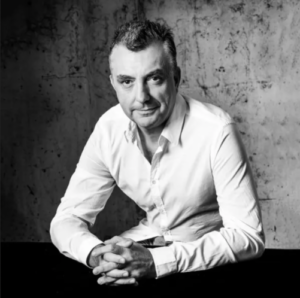 Manuel Vilas is an award-winning writer from Madrid, Spain. His internationally bestselling novel Ordesa, is now available in English (translated by Andrea Rosenberg) and has been reviewed by NPR and The New York Times. He splits his time between Spain and the United States, where he teaches at the University of Iowa.
Manuel Vilas is an award-winning writer from Madrid, Spain. His internationally bestselling novel Ordesa, is now available in English (translated by Andrea Rosenberg) and has been reviewed by NPR and The New York Times. He splits his time between Spain and the United States, where he teaches at the University of Iowa.
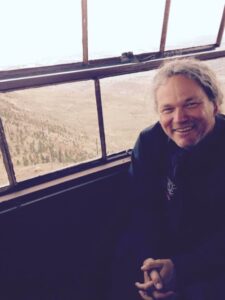 Born in Puerto Rico, John Yohe grew up in Michigan, spent years in Oregon, and now lives in Colorado. He has worked as a wildland firefighter, bike messenger, wilderness ranger and fire lookout. He is the fiction editor for Deep Wild Journal.
Born in Puerto Rico, John Yohe grew up in Michigan, spent years in Oregon, and now lives in Colorado. He has worked as a wildland firefighter, bike messenger, wilderness ranger and fire lookout. He is the fiction editor for Deep Wild Journal.

